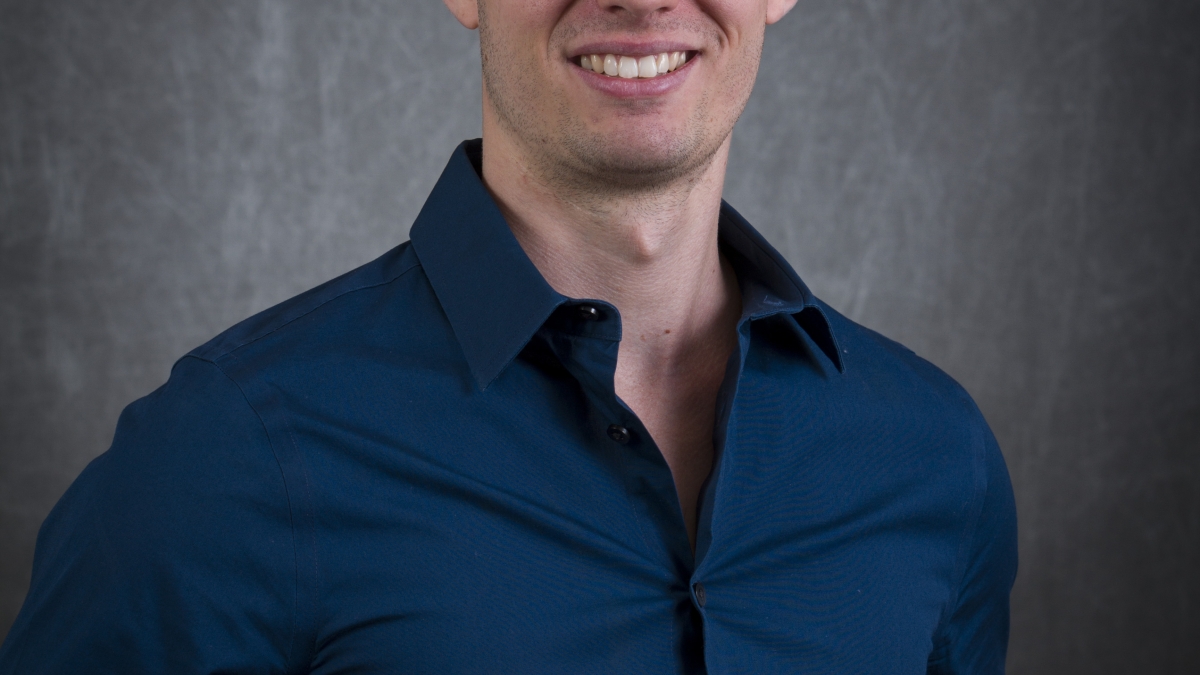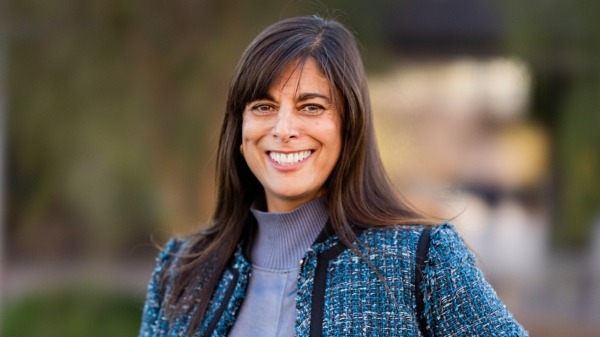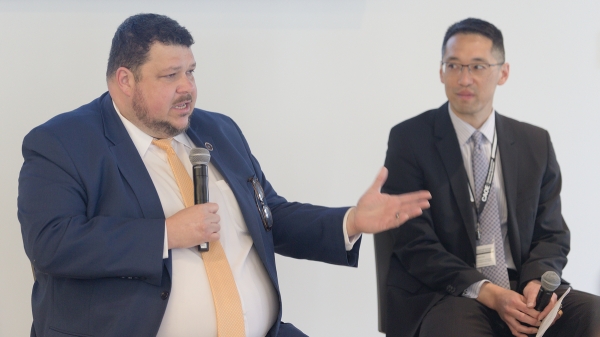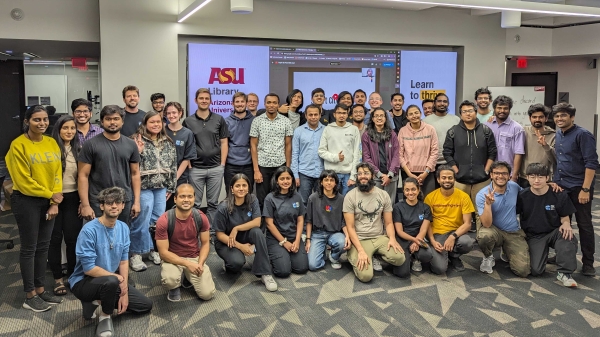NSF Graduate Research Fellow wants to use computer science to solve society’s toughest problems

Scott Freitas
Scott Freitas has had a passion for building things and understanding how things work since he was young.
“Computer science is an extension of that," said Freitas, who received a graduate degree through the 4+1 computer science accelerated master’s degree program in Arizona State University's Ira A. Fulton Schools of Engineering earlier this year. "You get to work on building and testing new ideas and theories every day.”
The allure of that pursuit brought Freitas back to college after he had already earned an undergraduate degree in electrical engineering at Arizona State University in 2014 and gone into the workforce for a short time.
His academic performance and research achievements have now earned him a National Science Foundation Graduate Research Fellowship award to support his work toward a doctoral degree in computer science in a highly reputable program at the Georgia Institute of Technology.
The NSF Graduate Research Fellowship program supports outstanding students considered to be potential leaders in science, technology, engineering and math. These students are contributing to the high-impact research, teaching and innovation needed to maintain the nation’s technological strength, security and economic vitality.
At Georgia Tech, Freitas will focus on research that explores how people connect and function through “societal constructs” — for example, energy and transportation networks and social networks.
“Many aspects of life and society can be represented as a network at a basic level,” Freitas explained. “By understanding how we relate to each other in all kinds of networks we can do cool things like fraud prediction and malware detection.
“My goal is to develop explainable systems to tackle these tough problems by incorporating many different sources of knowledge and information.”
The work involves analyzing large and complex sets of data for the purpose of creating better algorithms to inform critical decision-making and problem-solving.
“This has important applications in many areas, like epidemiology, cybersecurity and health care,” he said.
Freitas credits his budding skills largely to two years of research under the supervision of Assistant Professor Hanghang Tong, and to mentorship from other Fulton Schools faculty members, notably Associate Professor Ross Maciejewski and Assistant Professor Yezhou Yang.
Freitas said what he learned from them enabled him to author a research project proposal that he believes made him stand out from the approximately 12,000 applicants seeking NSF Graduate Research Fellowships.
He submitted his ideas for creating a data platform and a mathematical model using real-time assisted decision-making and preventive analysis for developing strategies to reduce the impacts of damage to local communities resulting from natural disasters.
The buildup to that successful application stemmed from “an abundance of opportunities” he used to further his education during both his undergraduate and graduate studies.
Freitas’ work in the Fulton Undergraduate Research Initiative, known as FURI, gave him the first motivating experience of doing substantive research.
Later, the insights gained in Tong’s Data Lab@ASU and Maciejewski’s Visual Analytics and Data Exploration Research Lab strengthened his commitment to rise higher in his field.
At this point, Freitas is confident in setting a long-term career goal of starting his own company. He wants to apply machine learning, data mining and network analysis to finding solutions to cybersecurity and human health challenges.
More about the 2018 NSF Graduate Fellow from the Fulton Schools of Engineering:
Logan Mathesen engineering solutions to big data challenges
Brendon Colbert combats cancer with math
Lexi Bounds aims to improve lives with synthetic biology
Alisha Menon sets her mind to research brain-inspired computing
More Science and technology

ASU planetary scientist to be inducted into the National Academy of Sciences
The National Academy of Sciences is inducting School of Earth and Space Exploration Director Meenakshi Wadhwa into the 2023 class…

Unlocking the potential of AI for homeland security
“Can we do what we're doing now cheaper, more efficiently, more effectively?” Adam Cox, director in the Office of Strategy and…

SpaceHACK highlights student solutions to environmental challenges, digital divide
By Adrianna Nine About 250 students from around the world convened online and at Arizona State University on March 22 for the…